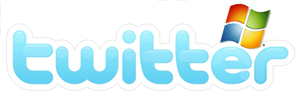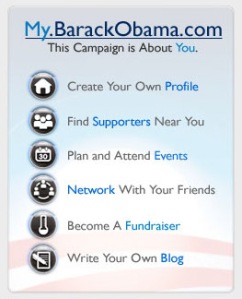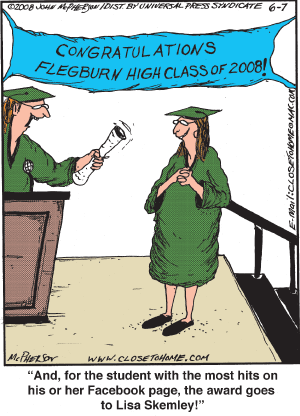 The rumor mill of possible suitors for Twitter blogs, buzzes and Tweets with different theories. The largest speculation, at least in terms of media attention, has Twitter pairing up with either Google or Apple. While these reports are officially unsubstantiated – they did get me to think about what Twitter would be like under new management, and what the significance would be for Internet Services.
The rumor mill of possible suitors for Twitter blogs, buzzes and Tweets with different theories. The largest speculation, at least in terms of media attention, has Twitter pairing up with either Google or Apple. While these reports are officially unsubstantiated – they did get me to think about what Twitter would be like under new management, and what the significance would be for Internet Services.
The Internet has re-invented itself several times in its brief history. From a government funded cold war project, to an academic research vehicle, to a closed consumer oriented portal (AOL, Prodigy, Compuserve) product, to the World Wide Web (often referred to as Web 1.0), to an interactive, interrelated, multi-device user content environment of today (aka Web 2.0). Each of these transitions has left many companies in the dust; with some companies merely surviving the transitions and a small select group thriving through the changes. Web brands and services such as Amazon, Google, E-bay, Apple (iPhone, iTunes) are examples of those that have thus far thrived through transitions.
It’s the next transition that is presently underway that makes the Twitter rumors particularly interesting.
Web 2.0 was initially defined in terms of user-generated content. In a rough sense the social media giants of today would be in that category. The way I define Web 3.0 is the total social integration of the Internet. Facebook, MySpace, and a collection of second tier players, plus the media darling, Twitter, are leading this social integration. Web 3.0 is all about Social media.
While both Google and Apple have benefited from social media, they are not in themselves social media leaders. An acquisition of Twitter for either company would thrust them into a major Web 3.0 position.
Lets look at this from the viewpoint of “Fear” and “Greed”.
Fear is motivated by losing something you have. Greed is the motivation of obtaining something you want.
Which company needs Twitter more?
The answer to this question is neither.
Google could continue being Google, and benefit from the eventual ad placements and paid search on Twitter, just as it has in the general web. The strategic question for Google is can they continue to have unfettered access to ad inventory without owning the social networks? Do they have to be a social networking giant also?
The Facebook/Google dustups on ad placements and “connect” services must have sent alarm bells ringing in Mountain View.

Google went after the mobile industry with its on mobile device platform, why not social media with its own network? Since Google is the undisputed heavyweight champion in internet advertising, it is the motivation of “fear”, of losing what they have, that would drive them to a Twitter acquisition.
Apple, like Google, can derive benefits from Twitter without an acquisition. There are various methods to Tweet your iTunes selection(s) directly on Twitter. Twitter has many iPhone applications and is likely a driver (albeit modest) for iPhone sales.
 Apple may have the most loyal clientele of any modern tech company. They have, however, not yet significantly leveraged this large, loyal, and generally satisfied customer base into a Web 3.0 style social network. Apple has tons of trade magazines and web sites on the virtues of Apple products, the product pipeline, self-help, and troubleshooting. The natural leveraging of this existing community into a social network must be on the strategic whiteboards at Apple HQ.
Apple may have the most loyal clientele of any modern tech company. They have, however, not yet significantly leveraged this large, loyal, and generally satisfied customer base into a Web 3.0 style social network. Apple has tons of trade magazines and web sites on the virtues of Apple products, the product pipeline, self-help, and troubleshooting. The natural leveraging of this existing community into a social network must be on the strategic whiteboards at Apple HQ.
I do not think that it would be fear that would motivate Apple to acquire Twitter, but “greed”. Apple has ridden the waves of portable computing, rich media, digital music, handheld devices, smart phones, web services and the need for great user experiences across everything, to ever increasing prominence and success. Extending these competencies into the next wave of social networking is natural.
Would an acquisition of Twitter thrust Apple into social networking leadership? Or would it be a distraction from their core strengths of devices, software, digital content, and UI design?
There is another company that could be motivated by both fear and greed.
Microsoft
Microsoft has been playing catch-up to Google and Yahoo in paid search for a decade. They were late to the game for Web 1.0 and have been eclipsed in all of the major Web 2.0 services. They are an example of a company that has survived transitions in Internet services, but have not thrived. They leveraged their virtual monopoly in desktop operating systems to a dominant browser position (regardless of how the courts ruled). The browser position gave MSN and Microsoft search products critical web traffic.
Five years ago the market share of IE was 93%, it is now 65%. Both of these numbers are staggering high for any tech product. Despite, the dominance of their browser, Microsoft is a third rung player in search and ad revenue. This browser advantage, completely leveraged from their operating system position, is eroding at an accelerating rate. This market loss has to create a fear motivation within Microsoft.
While I believe that Microsoft managers are breed for greed, they suffer from Innovators Dilemma. They are so large and so dominate, that truly new ventures, new innovation is difficult when compared to protecting the core. But the greed is still present. It is for this reason that I expect a Microsoft play for Twitter. An acquisition that would thrust Microsoft ahead of Google and Apple in Web 3.0 social media Internet.


 My angle is simple and parallels the major technological force that is reshaping our society, Web2.0.
My angle is simple and parallels the major technological force that is reshaping our society, Web2.0.
 This evening I helped one of my daughter’s with her homework. The assignment was to take pictures of religious icons and places within our town. She had two denominations to photograph, Jewish (which is a low degree of difficulty for us!) and ancient Greek.
This evening I helped one of my daughter’s with her homework. The assignment was to take pictures of religious icons and places within our town. She had two denominations to photograph, Jewish (which is a low degree of difficulty for us!) and ancient Greek.

